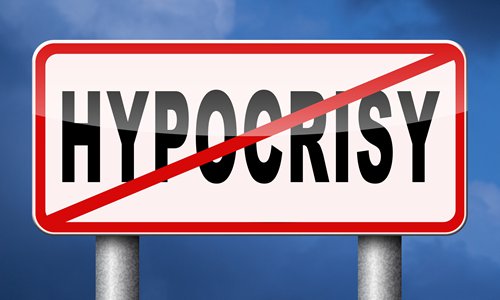HOME >> OPINION
Western hypocrisy worsens human trafficking problem
By Shi Tian Source:Global Times Published: 2019/10/27 21:28:40

Photo: IC
Although no official statement has been made, it is widely believed that the 39 bodies found dead in Essex, the United Kingdom, were stowaways involved in human trafficking.
No matter which countries they were from - Vietnam, China, or any other country - this tragedy is a warning to the entire world. It is time for all countries to address human trafficking and crack down on smugglers. In particular, some Western countries should abandon their double standards and shoulder their responsibilities.
Human trafficking is already a mature industry on a global scale. Criminal groups with an elaborate division of labor have created something like an industrial chain. Smugglers from different countries collude with each other, and bring a considerable number of emigrants to foreign lands through illegal means.
Deutsche Welle reported, for example, that in July 2015 alone, 107,500 migrants crossed the European Union's outer borders, and most of these people used the services of smugglers at some point on their journey. The business of smuggling people into Europe is worth 150 million euros ($166 million) per year or even higher, according to the UN Office on Drugs and Crime.
And 130,000 undocumented Mexican migrants crossed into the US in May this year. Traffickers must have contributed to this number.
Immigrants are often charged hefty fees but treated as commodities. Sulaiha Ali, a British solicitor, said that many stowaways are "lured" to the UK and other European destinations "on the promise of a legitimate job," but only get "subjected to forced labor or sex work on arrival." Their trip, however, may cost between £7,000 and £14,000 ($8,974-$17,949) a person.
These examples from different parts of the world are enough to demonstrate the rampancy of such crime, although they are only the tip of the iceberg. Such crime not only leads to social disorder, but also hurts individual interests and security.
Many countries, including China, have already shown their resolution to tackle this problem.
As early as 2002, China's Ministry of Public Security called for national actions against human smugglers. In 2016, 2,943 illegal migrants were arrested, including 142 smugglers.
Some Asian countries have also taken action. In 2015, the Association of Southeast Asian Nations (ASEAN) adopted the ASEAN Trafficking Convention and the ASEAN Plan of Action against Trafficking in Persons, Especially Women and Children.
But efforts from a few members in the international community are far from enough. The crime is conducted based on a global network. It should be dealt with by global cooperation.
Therefore, Western countries, the main destination for people traffickers, need to take some responsibilities. Some, however, not only always point an accusing finger at developing countries, but even support certain smugglers in the name of protecting human rights. In 2015, for example, Thailand encountered obstacles from the West when repatriating over 100 Uyghur emigrants who originally came from China's Xinjiang Uyghur Autonomous Region. They were not curbing crime, but defending it.
The West should see clearly how this crime impairs global security. The world needs a multilateral mechanism to address this problem, where the West should play a more positive role.
RELATED ARTICLES:
Posted in: OBSERVER